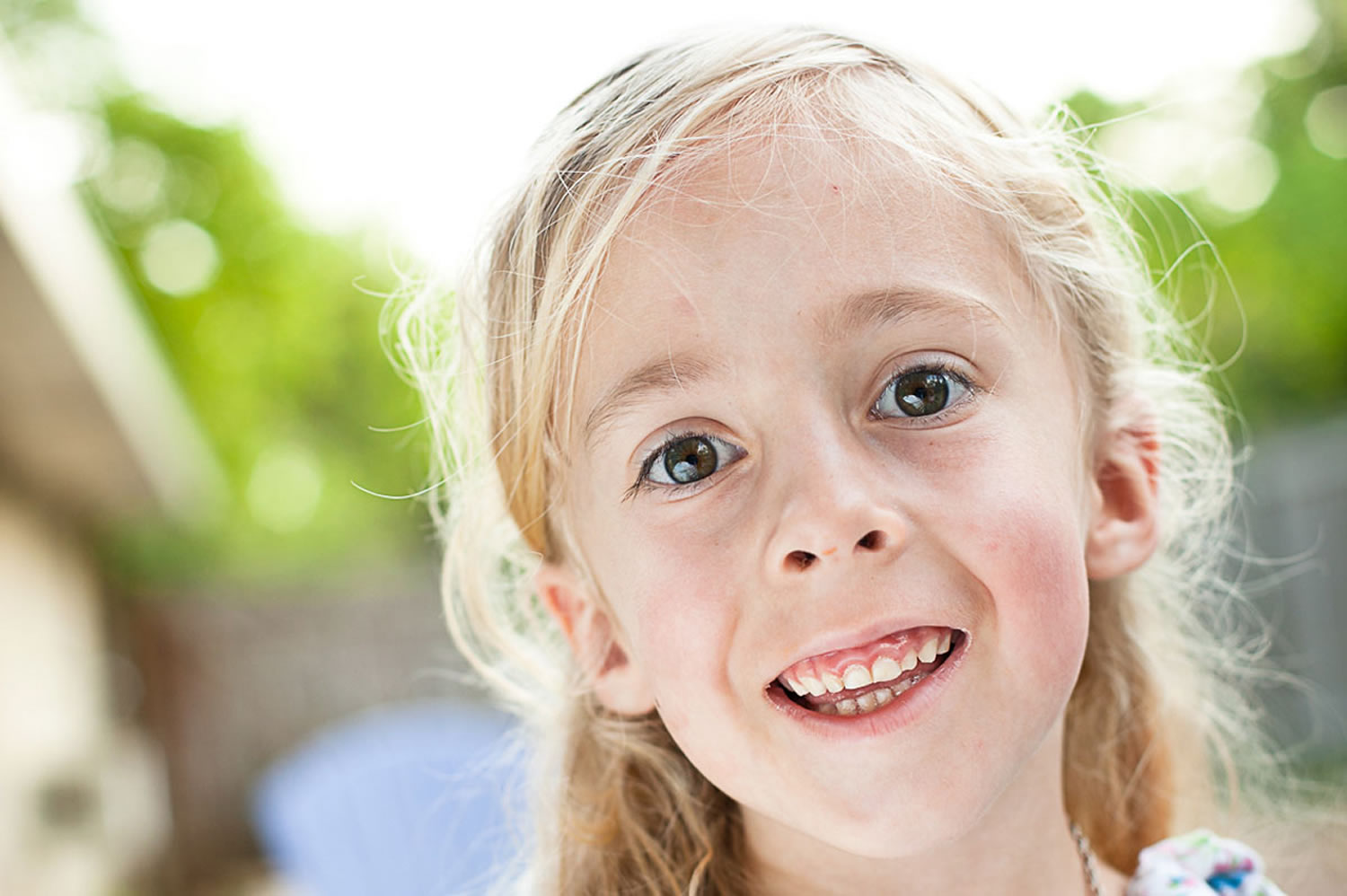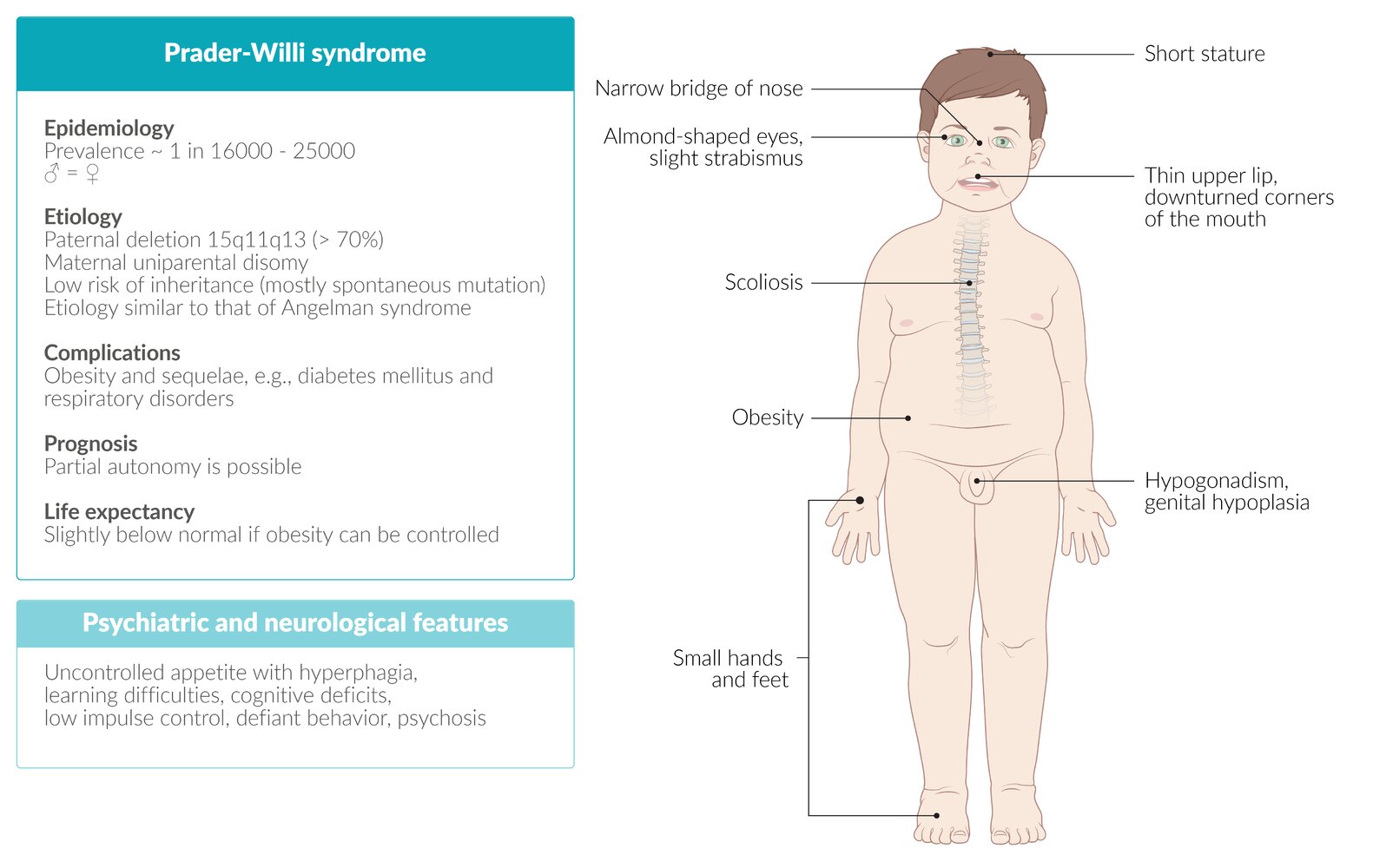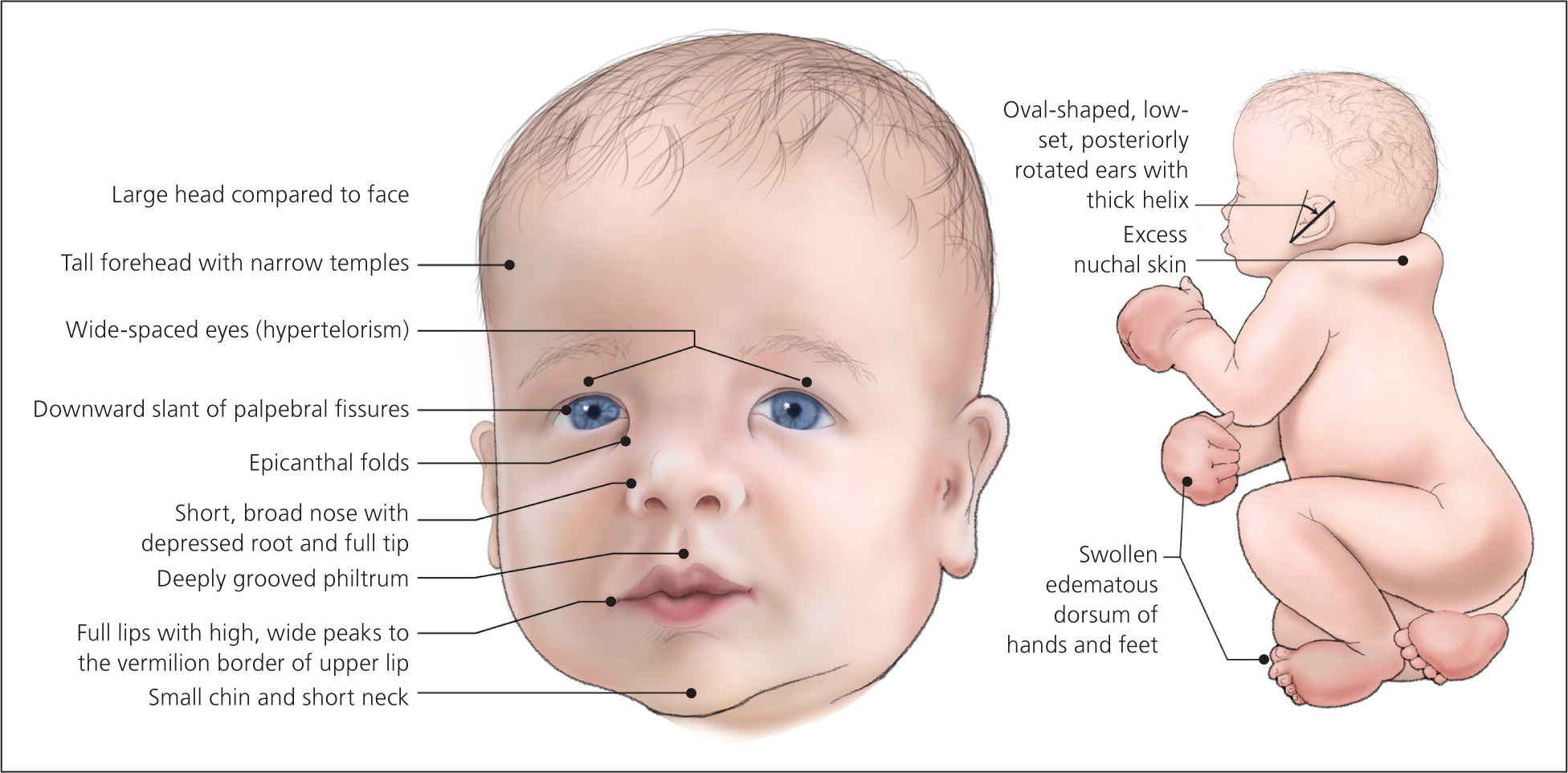
What is Prader-Willi syndrome?
Prader-Willi syndrome (PWS) is a genetic condition. It is caused by missing genes on chromosome 15. This happens by chance. Although it has no cure, treatment, especially if received early on, can help with symptoms.
What are the symptoms of Prader-Willi syndrome?
In babies, typical signs of PWS include:
- floppiness, difficulty sucking to feed, and delays in learning to sit and crawl, all caused by weakened muscles
- sleeping more than normal
- a weak cry
- failure to thrive
From around 2 years of age, affected children can start to develop other symptoms such as:
- an insatiable appetite, leading to excessive weight gain if not controlled
- being short for their age
- small hands and feet
- mild intellectual disability
- poor social and emotional skills
- behavioural problems, such as mood swings
- distinctive facial features (including a narrow bridge of the nose, a high and narrow forehead, a thin upper lip and downturned mouth, almond-shaped eyes, and eyes that look in different directions)
- undescended testes and small genitalia in boys
- irregular or no periods in girls
- higher tolerance of pain
- light skin and hair compared with other people in the family
- very flexible muscles
- curved spine (scoliosis)
As adolescents and adults, people with PWS tend to have breathing and sleeping issues, as well as a general lack of energy. Combined with an insatiable appetite, this can lead to life-threatening obesity.
How is Prader-Willi syndrome diagnosed?
If PWS is suspected, genetic testing can be done to reliably confirm the diagnosis. Some people are not accurately diagnosed until they are in their 20s or 30s.
Living with Prader-Willi syndrome
Diagnosing PWS as early as possible allows treatments that can help significantly with some of the symptoms. For example, a lack of height can be treated with growth hormone.
People with PWS simply cannot control their appetite — their brain doesn’t tell them they have had enough to eat. They also need far fewer calories than other people. They need care to keep them away from food and control their weight.
They will have a range of learning difficulties even if their IQ is not affected. They have poor social and emotional skills and are likely to have a lot of tantrums. They get tired easily and can fall asleep during the day.
Ideally, people with PWS will receive treatment and support from a whole team of health professionals. Australian guidelines recommend that doctors refer all children they see with PWS to a specialist PWS clinic (available in most capital cities) for additional care.
Children with PWS are usually able to go to school and may go on to work in supported employment. However, because of their uncontrollable appetite and other issues, adults with PWS are often not able to live independently. Adults with PWS are also more at risk of developing serious health problems linked with obesity, such as diabetes and heart disease.





